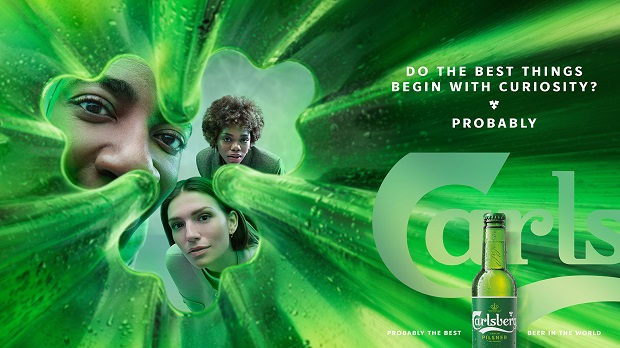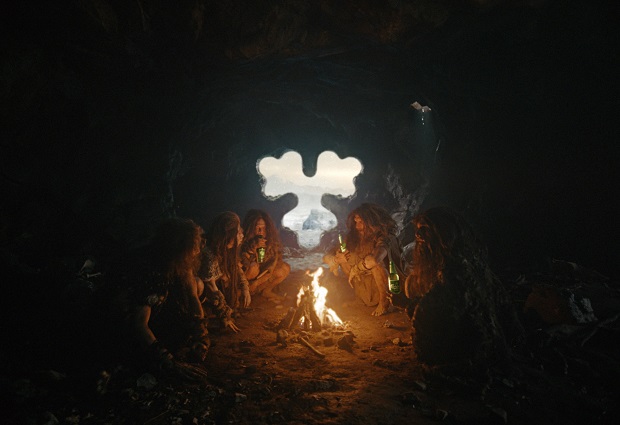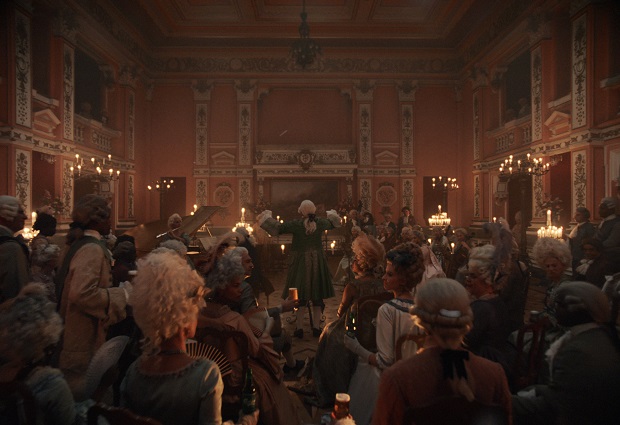New integrated campaign focuses on celebrating Carlsberg’s belief in progress through curiosity
 Carlsberg is launching a new global brand campaign – Do the best things begin with curiosity? Probably – championing that all progress in the world starts with a spark of curiosity.
Carlsberg is launching a new global brand campaign – Do the best things begin with curiosity? Probably – championing that all progress in the world starts with a spark of curiosity.
 The new campaign follows consumer research that uncovered a universally recognised human truth: the best things in life come to the curious. Although we are born innately curious, this can be tempered by the pressures of modern life as we grow into adulthood. This insight provides a simple, relatable foundation for the campaign and gives Carlsberg a clear and emotionally rich role to play in reinvigorating curiosity amongst beer drinkers around the world.
The new campaign follows consumer research that uncovered a universally recognised human truth: the best things in life come to the curious. Although we are born innately curious, this can be tempered by the pressures of modern life as we grow into adulthood. This insight provides a simple, relatable foundation for the campaign and gives Carlsberg a clear and emotionally rich role to play in reinvigorating curiosity amongst beer drinkers around the world.
 Curiosity has been at the forefront of everything Carlsberg has done since J.C. Jacobsen opened the brewery doors in 1847. Together with the very first employees, his ambition was to find out how things could be done differently: ultimately working to make a better beer.
Curiosity has been at the forefront of everything Carlsberg has done since J.C. Jacobsen opened the brewery doors in 1847. Together with the very first employees, his ambition was to find out how things could be done differently: ultimately working to make a better beer.
This curious mindset remains central at Carlsberg today. The Carlsberg Research Laboratory, founded in 1875, is home to more than 100 scientists dedicated to not only brewing better beer, but ‘brewing’ a better world. From inventing the pH-scale in 1909, to winning a Nobel prize for developing click chemistry in 2022, to breeding climate-tolerant plant types for future generations.
Do the best things begin with curiosity? Probably is the first time Carlsberg will run a global campaign across all 120 markets, rolling it out in the UK, Asia, South America and Europe throughout 2024 and into 2025.
The campaign leads with a brand film sitting across social, digital, TV and film. The story takes a trip through the ages to discover how, through a spark of curiosity, music was born. The witty, entertaining film synonymous with Carlsberg’s marketing heritage features modern-day clubbers, jazz-era swingers, dancing Roman Legionnaires, flautist shepherds and even whistling cavepeople. The brand film showcases how Carlsberg wants to bring fun to social occasions, especially when getting together with friends.
Launching first in Hong Kong from 1st April and in the UK from 1st May, Do the best things begin with curiosity? Probably will be a fully integrated campaign across cinema, TV, online video and BVOD, consumer PR, CRM, OOH, social media, e-commerce and internal communications as well as through in-store and outlet activations. Accompanying the main brand film, there are more than 100 flexible brand assets that will sit across all platforms, with assets for social media and e-commerce that introduce entirely new scenarios for consumers who are eager for content.
The ‘hop’ leaf from the Carlsberg logo takes centre stage in this new campaign, becoming a more distinctive brand icon that runs consistently across all touchpoints, driving recognition in addition to the brand’s iconic green.
Carlsberg’s popular ‘probably’ tag remains an important element of the campaign, introduced through lines such as “Do the best things begin with curiosity? Probably” as well as the iconic “Probably the best beer in the world”.
The film uses the iconic, late-80s breakbeat track, The 900 Number by The 45 King. The original track is featured alongside samples authentic to instruments in each era featured in the ad.
Lynsey Woods, Global Brand Director at Carlsberg, said: “This campaign is rooted in the insight that we can push the boundaries of progress with curiosity, something that is intrinsic to our core values at Carlsberg. Our founder J.C. Jacobsen’s mantra was ‘Semper Ardens’, Latin for ‘always burning’. Today, over 177 years later, we are still using our curiosity to push the boundaries of brewing beer through science, whether that’s finding new ways to reduce the energy and water needed in the brewing process, or developing crops which can tolerate a more extreme climate.
“We want to showcase, with a little fun, wit and entertainment, that we can all reinvigorate our curious side, and we hope the campaign does just that for beer drinkers across the world.”




Comments are closed.